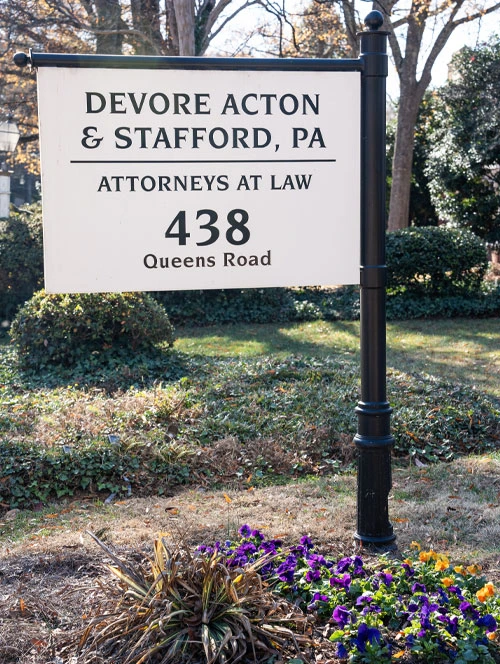Finding Legal Help for Eminent Domain Issues in North Carolina (2025)

Many homeowners may not know about the government’s right to seize property against their will. Finding legal help for eminent domain issues in North Carolina is crucial for residents whose properties have been threatened by eminent domain taking.
What Is Eminent Domain?
As outlined under the Fifth Amendment, eminent domain provides the government the power to take your property even if you are not looking to sell it. The eminent domain must be for “public use” such as building roads, schools, bridges, or utilities, and the owners should be paid “just compensation” for the property.
Process of Taking Your Property
After the government or other authorized organization has decided to seize your property, they will determine the value of your property because they are required to provide “just compensation.” It is not recommended that you accept this offer without consulting an attorney, as most of the time, you may be able to negotiate a higher price.
What Is “Just Compensation?”
Property owners are entitled to just compensation when the government exercises its eminent domain power. This typically includes the fair market value of the property and any severance damages. Severance damages compensate owners for the diminished value of the remaining property the government did not take. Some examples include:
- Loss of parking spaces caused disruption for the business.
- New buildings decreased the owner’s property value.
- Increased noise or pollution which diminishes property value or enjoyment.
- Loss of privacy due to increased proximity to the government project.
If negotiations fail, the government can initiate condemnation proceedings, which include filing a lawsuit in court to legally acquire your property. The court will then determine the fair market value. This decision may be appealed.
Examples of Eminent Domain Takings
Some common examples of eminent domain takings include:
Public Infrastructure Projects
Public infrastructure projects can include creating new roads, widening existing ones, building bridges, putting in railroads or public transit, utility placement such as power lines, gas pipelines, or waterlines, and public buildings, like schools, hospitals, or fire stations.
Economic Development
Private property might be taken for redevelopment projects like commercial centers or public spaces, industrial parks, sports stadiums, and arenas.
Public Use
Public use may include public parks, green spaces, recreational facilities, conservation areas, educational and cultural enrichment spaces, and the preservation of historic buildings or sites.
Your Legal Rights in Eminent Domain Issues
It is normal to have many questions when your property is facing eminent domain. You might be wondering what options you have to protect your home or business. An experienced eminent domain attorney can help you understand your legal rights and options. While rare, some property owners can fight the seizing of their property, but in most cases, the focus will be on maximizing your compensation.
Grounds for Challenging Eminent Domain
For the government or a private organization to utilize their eminent domain power, they must show that taking the property is necessary for “public use.” This could be challenged by showing:
- The proposed project does not fall under “public use” or,
- Your property is not necessary for this project.
Another argument that may be utilized is that the government did not lawfully act, did not follow proper procedures while attempting to take your property, or did not offer “just compensation.”
More Commonly, the Fight Will Be to Maximize Your Compensation
Unfortunately, eminent domain usually can’t be stopped. This means that as a property owner, you deserve the highest possible amount in compensation for your property. Most of the initial offers from the government will fall below what your property is worth.
Eminent domain laws dictate that property value should not be solely based on its current use, but should include the property’s “highest and best use,” which means the most profitable and legal use of the land. Hiring a team of professional appraisers, land planners, environment consultants, engineers, and developers can gather evidence and determine the property’s full value.
You and your family do not need to go through the eminent domain process alone. An attorney can fight for the compensation you deserve for your property and any potential severance damages.
FAQs
Q: What Is Eminent Domain?
A: Eminent domain is the government’s legal power to take private property for public use with only the property value as compensation for the owner. This is usually done to make room for building roads, schools, or utilities, and the entities who are able to exercise this power include state and local governments and utility companies.
Q: Can I Negotiate the Government’s Offer?
A: Yes, you can negotiate the government’s offer. It is recommended that you consult with an experienced attorney who can provide legal support with your negotiations. They can help you obtain appraisals from real estate professionals and other evidence that supports the fair market value of your property. They can also help you counter the government’s offer and negotiate for an agreeable settlement amount.
Q: How Is the Value of My Property Determined?
A: Typically, the value of your property is determined by the fair market value. This is the price that a willing buyer would pay a seller in an open and competitive market. Professional appraisers will analyze recent sales and look at location, size, condition, and other market conditions to determine this value.
Q: How Long Does the Eminent Domain Process Take?
A: The length of time the eminent domain process will take depends on the case factors. These factors can include whether the property owner wants to negotiate a new settlement, the case goes to court, or either party appeals the decision. This means it could be resolved at any point from a few months to over a year.
Contact Experienced North Carolina Eminent Domain Attorneys
If the government plans to take your North Carolina property, you need to understand your rights. Eminent domain laws can be complex, and you may not have been offered a fair deal. Contact an experienced eminent domain attorney at DAS Law Group, P.A. to protect your rights and advocate for fair compensation.

request your consultation
"*" indicates required fields


